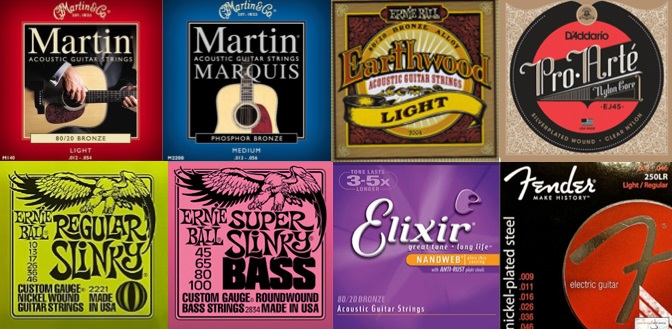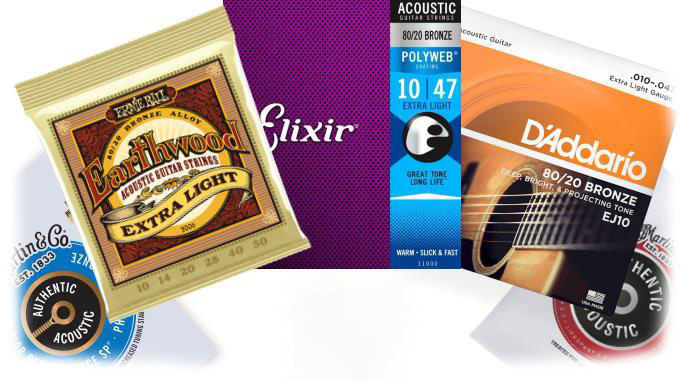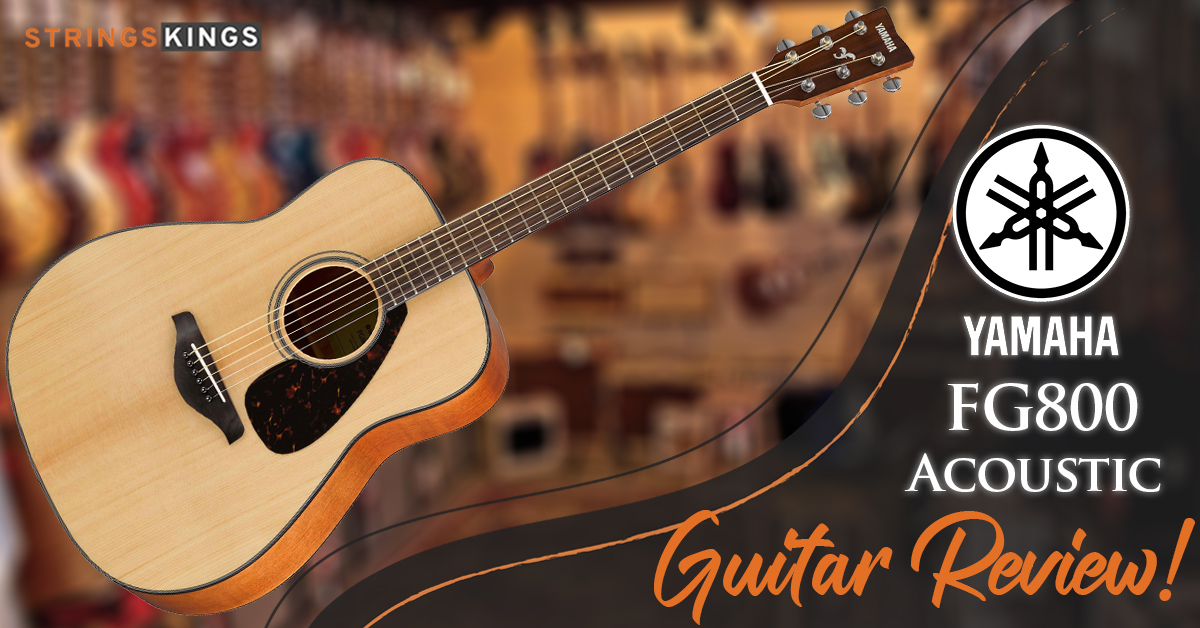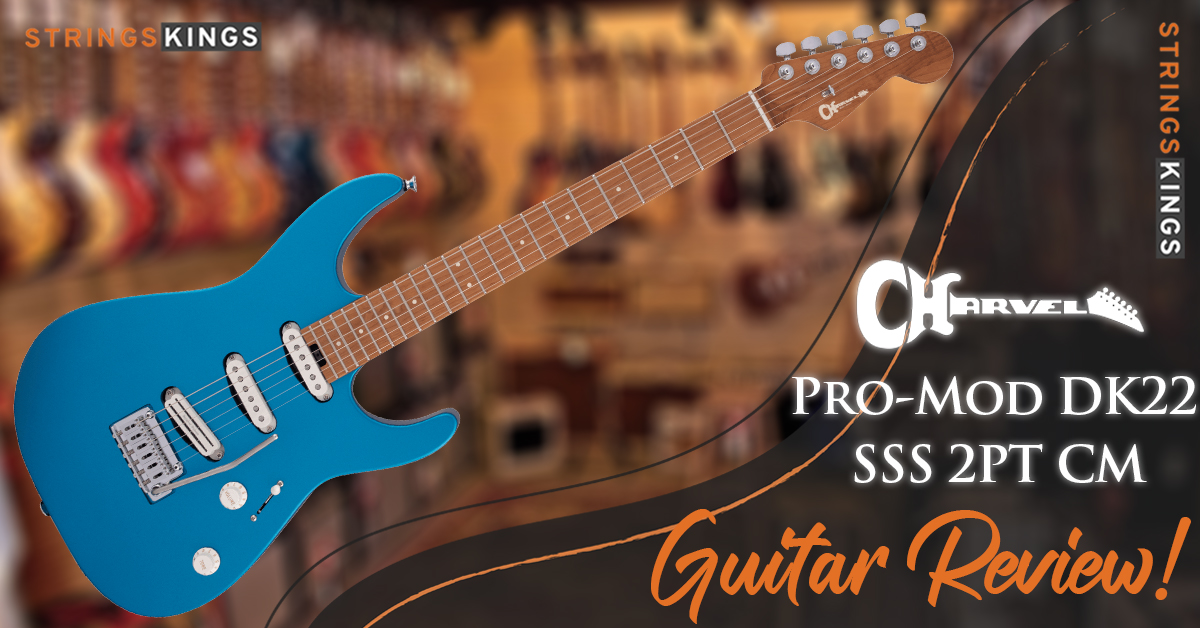Table of Contents
Expensive Guitar Strings, Are They Really Worth It?
The recurring expense of guitar strings is worth all guitarists should pay. Like with all things, you have low-end and high-end products of the identical thing. The same goes for guitars and guitar strings. So, our question is: Is there a big distinction between low-cost and the most expensive guitar strings? Are expensive guitar strings worth the price? In other words, do high-quality guitar strings make a difference?
Expensive good quality guitar strings are sometimes worth it because of their longevity, which regularly makes them comparable when it comes to price per playing hour. Expensive strings usually also have improved playability and tone. However, the worth isn’t at all times indicative of high quality, tone, or durability.
An advantage of strings is that you would be able to experiment with completely different string brands for a small amount of cash. Even expensive guitar strings don’t cost much compared with other guitar parts and accessories, such as amps, pedals, pickups, and many others.

How Much Should You Pay For Good Quality Guitar Strings?
The answer to this question is, in fact, “it depends”. Producers usually highlight a given characteristic of a string to justify its higher price level. Some features are associated with playability, similar to the case with silk and steel strings. Others have more to do with durabilities, such as coated strings or stainless-steel strings.
We additionally have to define what is meant by the term “expensive guitar strings.” While it is true that in most cases, this word is used unequivocally in reference to the price tag per unit or set, we additionally have to take into consideration the long-term approach. If a guitar set is 50% pricier but lasts 3 or 4 times more compared to another, let’s say that it finally ends up being really cheaper over time.
This is the primary reason why we need to all the time think when it comes to the price-quality ratio. Because of this, the higher-priced strings should have higher quality and endurance in an effort to justify their extra price.
All things considered, it is not essentially the case that all expensive guitar strings are definitely worth the price or better at fulfilling your particular needs.
We find examples of guitar strings that do not necessarily provide increased performance but carry a bit of moral weight. We are able to discover guitar string sets with signatures from well-known musicians, that are used as a marketing ploy to increase the price of the set.
Despite the fact that the sponsor’s authority acts as a “high-quality certification” of sorts, you can positively discover other sets available on the market that deliver identical (or higher) returns at a cheaper price.
So then, it is necessary to perform a little research to find what strings would be the finest on your guitar/bass and playing style. Furthermore, We would advise making an attempt at a few completely different sets before settling on your go-to selection. As soon as you understand what you want, there may be a chance to purchase in bulk, thereby reducing the price per set.

What To Look For In Good Guitar Strings
Listed below are some basic suggestions that may be helpful in your search for the most cost-effective strings. Let’s analyze the main characteristics of a guitar string.
Core & Winding Materials
The core and winding materials used in a set of guitar strings could have some impact on the overall price. For example, nickel tends to be cheaper than steel (related to electric guitar strings), and the addition of phosphor in a string design will enhance the price (related to acoustic guitar strings). Stainless steel cores are likely to cost more than regular steel.
Winding Technique
Flatwound strings have their winding compacted and flattened. This is totally different than round-wound strings, which have a simpler winding with notable ridges.
Flatwound strings usually provide a smoother feel with much less friction on the fingers. They have a tendency to make much less noise as fingers run across them. There’s additionally the argument that the ridges of round-wound strings accumulate more grime and dirt than their flat-wound counterparts, leading to quicker oxidation and wear.
Flatwound strings usually cost more, not only because of their performance benefits but as a result of the flattening-out process costs more throughout manufacturing. This added manufacturing price makes them more expensive for the buyer.
Coating
For individuals who value endurance, coated strings might be an excellent alternative. Few string makers provide coated strings which are worth buying, similar to Elixir or D’Addario.
These basically consist of strings with a layer of polymer wrapping the surface, presumably to behave as a protective barrier against corrosive agents. The coating is very helpful for wound strings and, more specifically, round-wound strings since they’re prone to build up gunk on the ridges or grooves.
Be aware that coated strings have a dimmer tone than uncoated strings. In recent times, however, producers have made efforts to improve their coating methods to reduce the gap between coated and uncoated strings as far as sound is concerned (although many audiophiles may disagree that that is the case.)
Furthermore, the coating additionally offers benefits that go beyond simply lengthening their lifespan. Many experts claim that the smooth surface of coated strings reduces finger squeak and improves fretting comfort.
Lastly, they are usually almost double the price of regular, uncoated strings. However, given that they are supposed to last 3 or 4 times more, you’ll finally find yourself paying less money on strings in the long term.

Tone
Different guitar string sets produce totally different tones. Cheaper guitar strings often don’t produce the sound as full and rich as expensive guitar strings produce.
That’s a result of expensive guitar strings resonating better. They’re, not just louder, but in addition warmer and fuller in terms of sound than cheap strings.
With cheap strings, you’ll often get a sound that’s more gained within the treble part of the frequency spectrum. Cheap strings don’t have a very good bass tone. Or you will get the opposite. With some string sets, you’ll be able to hear quite a lot of bass and mid, but the treble is missing.
Expensive guitar strings don’t have that downside. They’re balanced in a good way.
Durability
Expensive, high-quality strings last longer. That’s a result of high-quality strings being more resistant to corrosion. Corrosion and rust are strings’ biggest enemies.
Strings, generally, tend to get rusty over time. That’s due to the humidity in the environment, or sweat coming from our fingers. Proper guitar storing and string care can extend the longevity of guitar strings significantly.
However, expensive guitar strings last longer as a result they are wounded better. + They’ve been made out of better materials, in terms of high quality.
Other Factors That Affect Guitar String Prices
Listed below are a couple of different factors to think about that are likely to enhance the worth per set:
Recognizable Manufacturers
It is at all times necessary to choose strings made by recognized brands, especially those with a longstanding presence available in the market.
Household names similar to La Bella, Augustine, C.F. Martin, D’Addario, and Ernie Ball are examples of companies that may grant higher warranties for their products as a result of their extensive track record. Others similar to Elixir Strings haven’t been around as long, but they’re still comparable in prestige.
This does not imply that you will not have the ability to discover local suppliers in a position to match or surpass the quality and pricing of the items provided by worldwide recognizable opponents. Still, these could be hard to find, and you will run into much more risks when buying from them.
Utility
It needs to be stressed that there is virtually no guitar string set that checks all of the boxes. Some sets have added corrosion resistance at the expense of tone or sustain. Others produce better tonality while being more susceptible to degradation, as is the case with the bronze strings.
In light of the above, the very first thing you have to verify is the aspect you value more in a guitar string. In the event you’re more involved with comfort, then you need to think about string sets that are praised for their playability. In case your pet peeve is the tone or sound, it is best to find strings constructed with materials that provide the most effective results in this regard, and so on.
At times, you will discover strings that provide more visual attraction than anything, just like the “neon” string. While they may be nice for flashy stage performances, you might discover that they often compromise in the sound or playability department while carrying a hefty price ticket. Additionally, there are reviews that potentially trigger issues in the guitar’s finish as they wear out.
Tuning Stability
Low-cost guitar strings go out of tune more often. That’s because they’re wounded worse than top-quality strings are. Cheap strings are sometimes wounded in a method that their windings develop cracks and gaps. When the string is winded around tuning keys, windings on a string become loose over time.
That’s what makes cheap strings go out of tune more often after some time passes.
Expensive strings present better tuning stability. They’re made in a method that provides uniformity and stability of the tone.
Conclusion
Expensive guitar strings are undoubtedly worth it. Even in case, you worry about spending some additional bucks on these string sets, we will let you know to not worry.
Usually, the case is that the cheaper the product is, the more expensive it is in the long term. Cheap strings provide a worse playing experience, they don’t maintain the tone stable enough and so they have shorter lifespans. With all that in thoughts, it actually pays off to spend some extra money on expensive guitar strings.
Moreover, strings, as a product, don’t actually cost that much.







